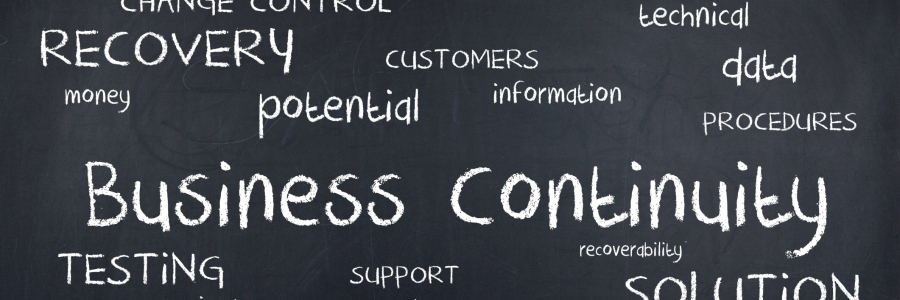A major crisis can happen to any business, at any time, so it's important to be prepared for when things go wrong. One way to do this is by creating a business continuity plan (BCP). In this blog post, we will discuss the importance of having a BCP and how it can help you keep your small- or medium-sized business (SMB) running during a crisis.
Be prepared for disasters: Business continuity planning for SMBs
How to protect your business from hurricanes

In 2021, the United States experienced one of the most active storm seasons on record, upsetting businesses already dealing with a pandemic. For companies without a good disaster recovery plan, the consequences were devastating. This is why your business should have a hurricane disaster recovery plan.
Data backup solutions your business needs

No one likes to think about losing data. But whether it’s due to cyberattacks, disgruntled employees, human error, equipment failure, or natural disasters, a data loss incident is always possible. The best way to avoid losing valuable customer and company information is to have a reliable backup solution.
Ensuring business continuity with cloud technology
What are the most common causes of server downtime?

Does your company in Southern California run its own server? If so, then you know that server downtime is one of the worst things that can happen. When your server is down, your employees tend to become unproductive and your business may end up losing money and customers if this becomes a recurring problem.
Create a business continuity plan with these 6 steps

In today’s fast-paced world of business, every second of downtime will hurt. And because there’s no telling how and when a disaster will hit your business, it’s a good idea to prepare for the worst. This is why it pays to have a business continuity plan, as having one enables your business to minimize the risk of downtime and react to any emergency event at a moment’s notice.
UPS: A must-have for network equipment

Power outages can happen anytime and for a number of reasons, including accidents and natural disasters such as fires and hurricanes. While there’s little your business can do to prevent a power outage, you can mitigate its impacts on your operations by deploying an uninterrupted power supply (UPS) for your computers and networking equipment.
Don’t believe these disaster recovery myths
Why is it important to have a business continuity plan?

Many small- to medium-sized business (SMB) owners fail to prepare for major crises like flood and ransomware attacks. Disaster events can cause downtime, which can result in lost revenue and lower profits. In addition, SMBs that fail to recover quickly from disruption face the risk of losing their customers to their competitors.
5 Business continuity errors to avoid

Business continuity plans (BCPs) are designed to protect an organization’s critical data in case of a crisis. But there is more to BCPs than securing data; it also entails making sure employees are safe during a disruption. If you want an infallible business continuity plan, cover every base and avoid the following mistakes.




